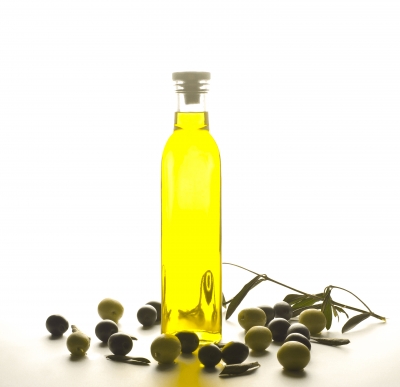|
I have a lot of my patients ask about which oils they should be using. I, too, find myself a little uneasy when I'm standing in front of the oil section in the grocery store. It's a difficult topic to research, there are a lot of contradictory 'facts' and 'figures' out there. I've attempted to do your research for you, and have put together this simple guide.
BACKGROUND: There are three main factors to consider when choosing an oil: 1) Form (Omega 3/6/9) To keep it simple, we get way too much Omega-6 and not enough Omega-3 in our diet. Omega-6 is significantly more inflammatory in the body. To make things worse, it edges out what little Omega-3 we have. Anyone who tells you that you need more Omega-6 is wrong (and, yes, I know I'm contradicting Dr. Udo here). The only exception to this rule is a form of Omega-6 called GLA (gamma linolenic acid), found most commonly in borage oil and evening primrose oil, which sometimes helps with particular conditions such as eczema and premenstrual syndrone. Omega-9 oils have been proven to have beneficial effects on such things as heart health and blood pressure, which has partly lead to the popularity of olive oil. Please note, your body can make its own Omega-9, the only thing you need to worry about increasing is Omega-3. (Saturated vs. Unsatured) Polyunsaturated fatty acids are unstable. They begin to go rancid the moment you open the bottle, and aren't able to withstand heat well at all. Monounsatured fatty acids are much more stable and it looks like they have some great health benefits. Saturated fatty acids are not evil! It turns out there probably wasn't anything wrong with grandma frying her eggs in bacon grease. They are very stable oils (including butter, tallow, ghee, etc.). The ratio of Omega's in animal fat is determined by what the animal ate during its life. For example, grass-fed beef is significantly higher in Omega-3. (Note - coconut oil is also largely saturated fat) All that said, I don't generally recommend cooking with dairy fats because if I had a dollar for every patient of mine who was intolerant of dairy, well, I'd be able to go to Starbucks for a loooooong time. 2) Smoke Point This refers to the point at which the oil begins to smoke when exposed to heat, signifying that it has started to break down into a form that is not good for you. 3) Processing Oils made from genetically-modified plants and subjected to chemical solvents just don't make health sense. MY OIL RECOMMENDATIONS Uncooked: olive Reasons - proven health benefits, mostly Omega-9, high in monounsaturated fats sesame Reasons - taste, high antioxidant content, generally well-balanced oil High Heat: avocado Reasons - smoke point of 400°F (204°C) (extra virgin), high monounsaturated fatty acid content, not high in Omega-6 coconut Reasons - smoke point of 350°F (177°C) (extra virgin), high saturated fatty acid content, speculative health benefits (such as raising good cholesterol or antiviral properties), not high in Omega-6 macadamia Reasons - high monounsaturated fatty acid content, smoke point of 413°F (210°C), not high in Omega-6 Don't Eat: flax seed Reasons - not proven to be a form of omega-3 we can actually use, oxidizes rapidly (which can cause cancer), and better absorbed in its whole form (freshly ground) canola Reasons - (generally) genetically-modified, (generally) chemically extracted, high in polyunsaturated fat rice bran oil Reasons - difficult to find cold-pressed (though it is well-balanced with a high smoke point) Supplementation: Fish, fish, fish (ideally, small fish like anchovies and sardines)! Please see this blog entry for more details. All that said, seek the advice of a healthcare practitioner to determine the right medical-grade oil for YOU. Last pieces of advice: NEVER buy oils in bulk. Unless you're going to go through it extremely quickly, buy the smallest bottle possible and keep it is as cold as possible without it solidifying (such that you can't pour it). Oxidized oil is just not good for you. Look for 'cold-pressed' or 'expeller-pressed' oils. Expeller pressed oils are produced by manual compression, as opposed to chemical solvents. 'Cold-pressed' means that the expeller pressing was done in a temperature controlled environment, because the process can naturally generate very high heat. 'Extra virgin' should mean that oil was produced by mechanical means without chemical solvents. If you'd like to research these topics further, here are two great sites: http://www.wholefoodsmarket.com/recipes/food-guides/cooking-oils http://theconsciouslife.com/omega-3-6-9-ratio-cooking-oils.htm [Image courtesy of m_bartosch / FreeDigitalPhotos.net]
1 Comment
|
AuthorDr. Dielle Raymond, ND Archives
March 2020
Categories |
This website is intended for educational purposes only. There are no contents on this website that are intended to provide medical advice, diagnosis, or treatment. Copyright ©2023 Dr. Dielle Raymond, ND. All Rights Reserved.


 RSS Feed
RSS Feed